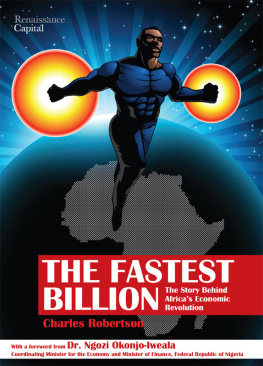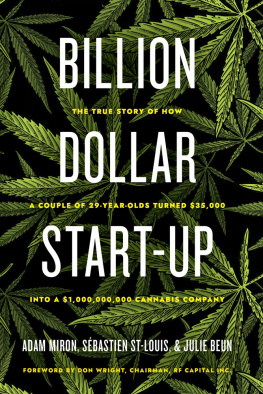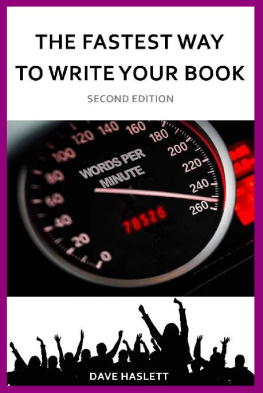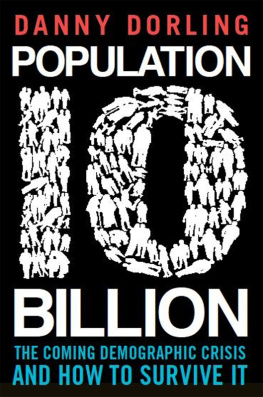Charles Robertson - The Fastest Billion: The Story Behind Africa’s Economic Revolution
Here you can read online Charles Robertson - The Fastest Billion: The Story Behind Africa’s Economic Revolution full text of the book (entire story) in english for free. Download pdf and epub, get meaning, cover and reviews about this ebook. year: 2012, publisher: Renaissance Capital, genre: Politics. Description of the work, (preface) as well as reviews are available. Best literature library LitArk.com created for fans of good reading and offers a wide selection of genres:
Romance novel
Science fiction
Adventure
Detective
Science
History
Home and family
Prose
Art
Politics
Computer
Non-fiction
Religion
Business
Children
Humor
Choose a favorite category and find really read worthwhile books. Enjoy immersion in the world of imagination, feel the emotions of the characters or learn something new for yourself, make an fascinating discovery.
- Book:The Fastest Billion: The Story Behind Africa’s Economic Revolution
- Author:
- Publisher:Renaissance Capital
- Genre:
- Year:2012
- Rating:4 / 5
- Favourites:Add to favourites
- Your mark:
- 80
- 1
- 2
- 3
- 4
- 5
The Fastest Billion: The Story Behind Africa’s Economic Revolution: summary, description and annotation
We offer to read an annotation, description, summary or preface (depends on what the author of the book "The Fastest Billion: The Story Behind Africa’s Economic Revolution" wrote himself). If you haven't found the necessary information about the book — write in the comments, we will try to find it.
The Fastest Billion: The Story Behind Africa’s Economic Revolution — read online for free the complete book (whole text) full work
Below is the text of the book, divided by pages. System saving the place of the last page read, allows you to conveniently read the book "The Fastest Billion: The Story Behind Africa’s Economic Revolution" online for free, without having to search again every time where you left off. Put a bookmark, and you can go to the page where you finished reading at any time.
Font size:
Interval:
Bookmark:


Charles Robertson is Global Chief Economist, Head of Macro-strategy, Renaissance Capital
Renaissance Capital Securities Limited
Printed in the UK by:
Servicepoint UK Ltd (CFI Division)
Tower Bridge Business Complex
Unit N01 The Biscuit Factory
100 Clements Road
London
SE16 4DG
ISBN-13: 978-0957420304
ISBN: 9780957420311
All rights reserved. Except for the quotation of short passages for the purpose of criticism and review, no part of this publication may be reproduced, stored in a retrieval system, or transmitted, in any form or by any means, electronic, mechanical, photocopying, recording or otherwise, without the prior permission of the publisher.
Every effort has been made to trace all copyright holders, but if any have been inadvertently overlooked the publisher will be pleased to include any necessary credits in any subsequent reprint or edition.
Paper details:
Edixion Offset
GSM 90
This paper is FSC approved.

Contents
Acknowledgements
This in-depth, on-the-ground look at Africas economic revolution resulted from a decision by Renaissance Group in 2005 to grow beyond its home markets of Russia and the CIS, to Africa. In seven years, the Firm has established seven offices across Africa and invested over $1bn of its own capital in the continent. The centrepiece of our investment has been the people over 180 on the ground in Africa who work for the Group and its businesses. This book would not have been possible without the groundwork they have laid and knowledge base they have created in order to support the team of economists, analysts and other Renaissance experts who contributed to this book.
As this is Renaissance Groups first book, there is no shortage of people to thank for their inspiration, wisdom and guidance as we created a narrative from the 2,500 research reports we prepared on Africa since 2005.
Stephen Jennings, the founder and CEO of Renaissance Group, took that fateful decision seven years ago to hitch up our business to Africas coming growth and gamble that the long-term strength of the Firm lay in diversity, and in Africa. He was right.
Paul Collier, author of The Bottom Billion: Why the Poorest Countries are Failing and What Can Be Done About It, pioneered recent research into Africa and gave us inspiration for our title.
The Renaissance Capital Research team and its editors Michiko Fox, Mark Porter and Abigail Mauldin run a 24/7 operation across several continents, perfecting the impressive output of dozens of the best emerging-markets analysts.
We are grateful to Preston Mendenhall, Alexandra Waldman, Sergey Turov, Daria Khilenkova, Sabir Aliev, Natalia Pchelintseva, Ivan Aleshin, Svetlana Mitina, Lyudmila Bibina and Olesya Latyshko for engineering the project. Brunswick Group has provided strategic advice to Renaissance Group for many years. Sally Tickner supplied invaluable publishing-industry insight. Richard Walker and Duncan Robertson lent their editing prowess to our work.
We are indebted to Her Excellency Ngozi Okonjo Iweala, Coordinating Minister for the Economy and Minister of Finance, Federal Republic of Nigeria, for contributing the foreword to The Fastest Billion.
The entire Renaissance Group team is thankful to their families for their tolerance of frequent absences, during the compilation of this book and as part of our work for one of the most hard-charging and innovative emerging-markets firms in the world.
Accra, Harare, Johannesburg, Lagos, Lubumbashi, Lusaka, Nairobi and London October 2012
Foreword
Africa Unbound
By Ngozi Okonjo-Iweala
I magine a continent torn by multiple wars, beset by ethnic and religious warfare, malnutrition, disease and illiteracy all of it complicated by poorly drawn borders, a still potent post-colonial stigma and the incessant meddling of outside powers.
With a single exception, per capita income hovers at $400, primary school education reaches only a fraction of the regions vast population, and its authoritarian rulers ensure any revenue generated by the regions rich natural resources is spent on personal, rather than national priorities. Prospects for pulling the multitudes who live at, or just above, subsistence levels seem remote, at best.
Too many readers will by now have concluded that the continent referred to above is my own, Africa. In fact, while Sub-Saharan Africa has suffered the same problems in recent decades, the region described above is Developing Asia in the mid-1970s: an area of the world that had endured 200 years of decline, imperial domination and economic stagnation before beginning on the path that would transform it into the most economically vibrant zone on Earth.
Just as SSA has suffered through its despots and destitution, so the seedlings of transformation have pushed through the African soil. As an increasing number of economists, investors and financial policymakers have realised, SSA has emerged from its own malaise, into a dawn that promises growth to rival, if not surpass, that recorded by Asias Tigers over the past two decades.
Indeed, as Charles Robertson and his Renaissance Capital colleagues point out in The Fastest Billion: The Story Behind Africas Economic Revolution, the macro-economic, demographic and geopolitical picture below the Sahel today bears a strong resemblance to the start of East Asias climb in the early 1980s, when emerging-market powerhouses like India, South Korea, Malaysia and Indonesia were still regarded as basket cases by many in the so-called First World: more likely to be targets for development aid and pedantic lectures than long-term investment. Yet what portfolio manager today would not love to be able to say, And, of course, we were overweight Asia back when the Tigers were mere cubs.
It is the argument of this book that the best-performing nations of SSA today are poised for their own historic period of growth, driven not just by the continents rich and still largely untapped natural resources, but also its growing domestic strengths, its agricultural potential and its unique internal dynamism. With over a billion people, national economies of increasing sophistication and openness, vaulting improvements in governance, health and education, and the distinction of being the fastest-growing region on the planet, Africa will indeed claim its due, and global capital markets will play a vital role.
Much has been made in the West of the enormous sums China has invested in African economies over the past decade. In some cases, this natural desire by Beijing and other emerging powers to find new markets for their products while buying raw materials for their booming economies has been cast in conspiratorial, even Cold War terms. This is vastly overdone, to my mind.
In fact, emerging markets and developing countries are contributing more to global growth than they ever did 60 percent or more and their seemingly disproportionate activities in Africa are part of this trend. In many developing countries, the biggest investors are now other developing countries, and not just China, but India, Singapore, Russia, Brazil and others. China, in particular, often includes massive infrastructure improvements in its commercial dealings with SSA, leaving behind railways, roads and port facilities that make trade easier for all nations.
Next pageFont size:
Interval:
Bookmark:
Similar books «The Fastest Billion: The Story Behind Africa’s Economic Revolution»
Look at similar books to The Fastest Billion: The Story Behind Africa’s Economic Revolution. We have selected literature similar in name and meaning in the hope of providing readers with more options to find new, interesting, not yet read works.
Discussion, reviews of the book The Fastest Billion: The Story Behind Africa’s Economic Revolution and just readers' own opinions. Leave your comments, write what you think about the work, its meaning or the main characters. Specify what exactly you liked and what you didn't like, and why you think so.












